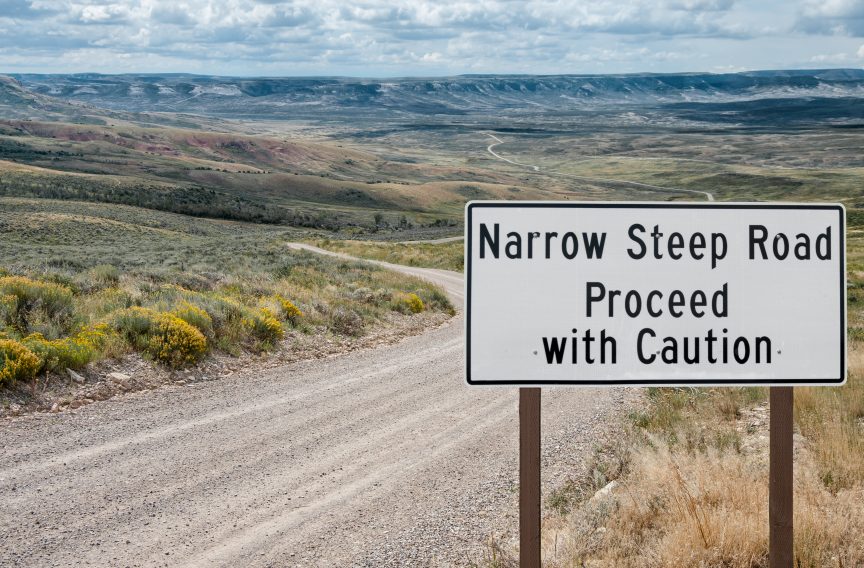To ensure that your unpaved roads remain strong and durable, it’s important to get a clear understanding of how all kinds of inclement weather might affect them.
While we all wish there was a foolproof way to protect critical roadways from the elements, the truth is that even the strongest unpaved roads can become destabilized by foul weather. Heavy wind, frequent rain, and extreme temperatures can wreak havoc on any unpaved surface and compromise its long-term functionality. To protect your roadways, it’s crucial that you understand how various weather events and seasonal changes can cause serious structural damage.
Soil Stabilization
It’s difficult to grasp the full effect of the weather on your unpaved roads without first understanding how unpaved roads are made. They’re typically constructed with gravel or another imported material and treated through a process called soil stabilization, which binds the road’s native soils with chemical products specially engineered to create a strong, lasting surface.
When properly treated with a product that’s proven to work (and keep working), an unpaved road can remain structurally sound for as long as 20 years, requiring only routine maintenance throughout that time span. Since the product forms a protective sealant that traps dust and particulate matter within the surface, an effectively stabilized road can also protect the surrounding environment from fugitive dust emissions that would otherwise get kicked up by traffic or wind.
Temperature Changes Mean Road Changes
As you might have guessed, climate is one of the most important variables in the soil stabilization process. It’s essential that you consider typical weather patterns not only at the time of construction, but all year-round as well.
In a desert climate, for instance, routine weather shifts can devastate any unpaved road. Temperatures in the early morning might be in the 60s or 70s — but by the late afternoon, they might climb to well over 100 degrees Fahrenheit. Because the road is subject to such a wide range of temperatures, anyone putting together a soil stabilization program must consider how these shifts will impact product dilution rates and compaction placement. A quality soil stabilization vendor should design a program that is prepared for all possibilities, accounting for any seasonal shifts and potential weather events.
A High Functioning Road, Come Rain or Shine
While variable temperatures present one set of potential issues, rain offers quite another. Clay soils are especially susceptible to heavy precipitation, since clay naturally absorbs excess moisture and subsequently expands. When the soil then dries out, it contracts considerably, causing the surface to crack. If you’re constructing an unpaved road in a rainy area, bear in mind that it will require more frequent maintenance than one in a drier climate.
Regular rain will also determine the type of products that should be used to stabilize the soil in the road. A polymer foundation, for example, will offer quality wet and dry strength, but if there are any concerns regarding regular swelling and shrinkage, a resin-modified polymer might be a safer option.
A Personalized Approach
With over 40 years of experience in the soil stabilization business, Midwest Industrial Supply, Inc. has the experience and expertise needed to strengthen your unpaved roads with reliable, proven solutions. Backed by our patented GreenPave® technology, our suite of soil stabilization products like Soil-Sement® and Eco-Pave® are powerful polymer emulsions that form an impenetrable sealant on the road’s surface, significantly increasing its load-bearing capacity while trapping dust within the surface.
Our talented team of industry experts can quickly identify challenges and develop an appropriate soil stabilization program for you. Regardless of your site’s needs, we work with you to develop a reliable and cost-effective solution for all of your unpaved roads, helping them withstand extreme weather and regular usage while reducing maintenance costs.


